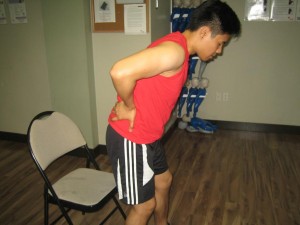Back spasms are described as painful contractions or cramping in the back muscles. The discomfort might be the outcome of going overboard on an athletic workout or moving out of bed or engaging in a household task incorrectly.
Most cases of back spasms involve the lower region of the back. Luckily, there are several remedies that can help alleviate the discomfort of the back spasms.
Application of ice for back spasms
Applying an ice pack is recommended on the site of the back spasms. Apply the pack in a massaging motion on the back for around 12 minutes. The cold not only helps alleviate the discomfort but also lessen the inflammation of the muscle and adjacent tissues. You can apply the pack throughout the day with a 20-minute break between each session.

Pain medications
Provide an over-the-counter pain medication such as acetaminophen or ibuprofen for back spasms. Remember that most back spasms that arise without any tearing of the ligament can be eased with medications.
Stretching and strengthening exercises
Perform some mild stretching to strengthen the lower back which both relieves and prevents back spasms. One example is pelvic tilts which strengthens the lower region of the back while at the same time improving flexibility.
The individual should also execute leg lifts to strengthen the back as well as the core to loosen up the taut muscles that are prone to spasms. It is recommended to perform 2 sets of 10 repetitions.
